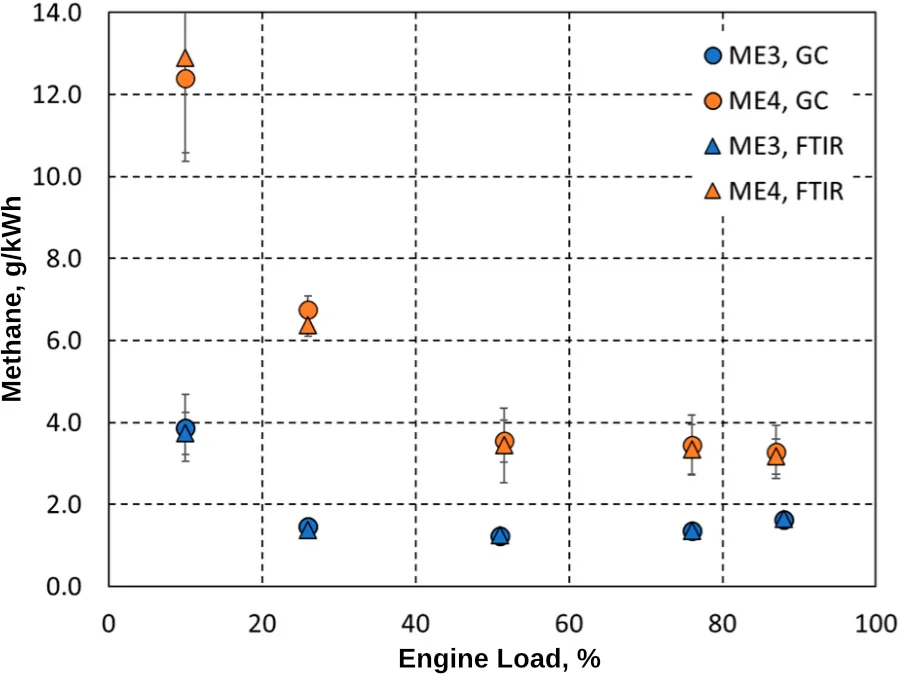VTT study finds reduced CH4 slip from new combustion concept marine LNG engine
15 May 2023
Researchers from the VTT Technical Research Centre of Finland studied exhaust emissions from two Wärtsilä 31DF dual-fuel engines onboard a ferry. One of the engines was piloting a new combustion concept, while the other was a standard setup. It was found that the new combustion concept produced significantly lower methane slip.
The emission measurements were carried out on board the Aurora Botnia, Wasaline’s RoPax ferry, operating a route between Vaasa (Finland) and Umeå (Sweden) in December 2022. This modern, state-of-the-art ferry was built in 2021. The ferry is powered by four Wärtsilä 31DF dual-fuel engines capable of operating using liquefied natural gas (LNG). The engines are medium-speed 4-stroke marine engines and have 8 cylinders, with a power of 550 kW per cylinder.
The measurements were conducted from the exhausts of two different engines—the engine piloting the new combustion concept (Main Engine 3, ME3) and an engine with a standard 31DF setup built in 2021 (Main Engine 4, ME4).
The results from the standard DF engine showed methane levels that were, in general, lower than what has been reported earlier from onboard studies with similar sized DF engines. Meanwhile, methane emissions from the DF engine piloting the new combustion concept were 50–70% lower than those of the standard DF engine setup. Although CO2 was found to slightly increase with the new combustion concept, the CO2 equivalent (including both methane and CO2) was also lower compared to the standard DF engine.

LNG was utilized as the primary fuel and marine diesel oil (MDO) was utilized as the pilot fuel. For ME4, the share of pilot fuel was 3–13%, and for ME3—piloting the new combustion concept—the share of pilot fuel was 10–28%. With both engines, the higher proportions of MDO were at the lowest loads.
There are few details on Wärtsilä’s new combustion concept but according to media reports, it targets methane slip of about 1 g/kWh.
The study also found that the new combustion concept produced lower NOx and formaldehyde emissions compared to the standard DF engine, while an increase in particle number emissions was observed. However, PN emissions from the ME3 engine were still about one tenth of those produced using diesel fuel.
The study was conducted within the EU-funded Green Ray project, which aims to minimize methane slip from marine LNG engines. The project is developing technologies for 2- and 4-stroke low-pressure dual-fuel engines, as well as a novel aftertreatment concept. The Green Ray project has also recently released a literature review report on methane slip from LNG engines [5789].
Source: Green Ray project